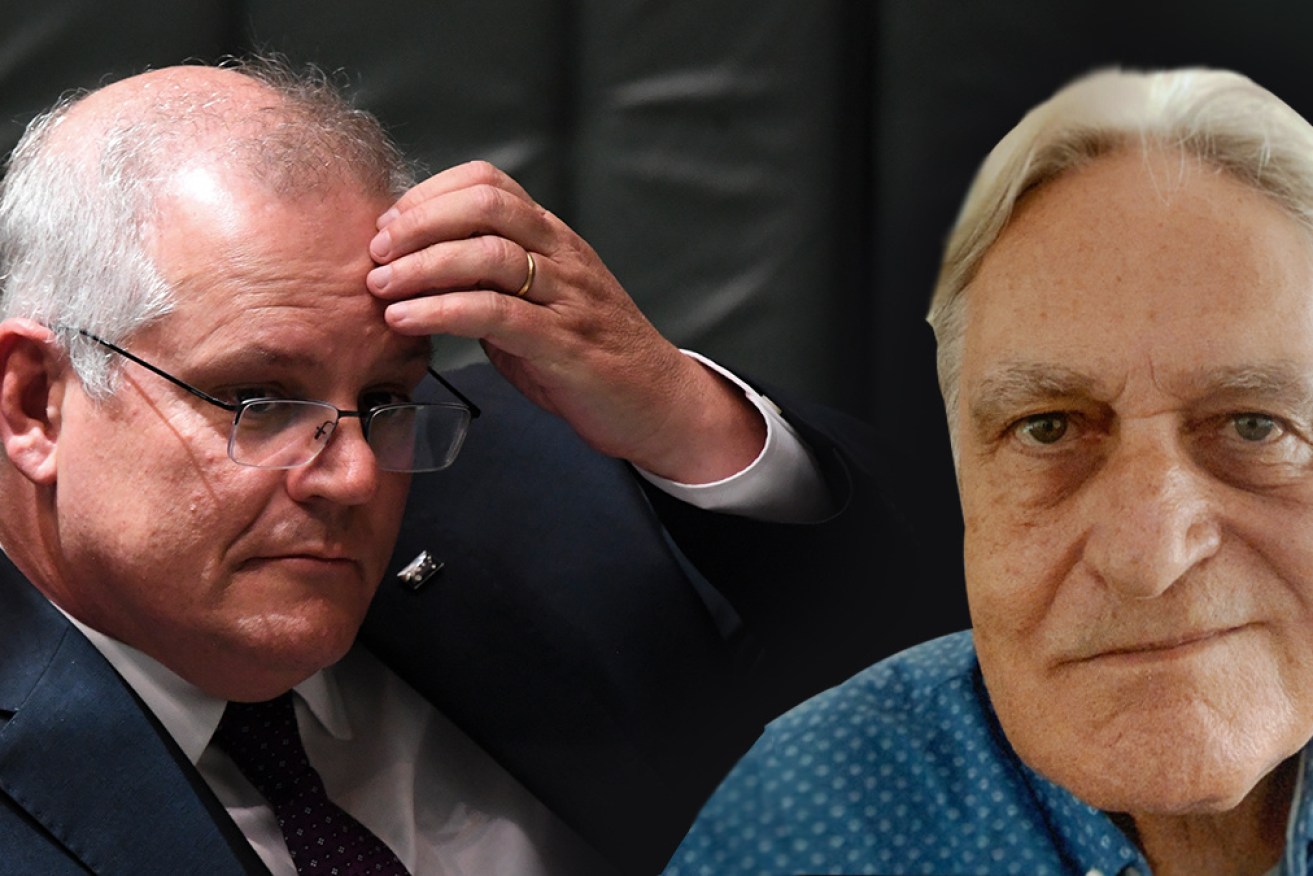Dennis Atkins: All politicians lie, but Scott Morrison’s untruths transcend the usual


PM Scott Morrison is a top-tier fabulist, writes Dennis Atkins.
All politicians lie. Some do it as easily as most of us draw breath and others struggle to avoid telling the truth but find it necessary for altruistic reasons or a matter of white-knuckle survival.
Within this general group there’s a special class of political liars, and our Prime Minister Scott Morrison, is as practiced and accomplished as any in this top tier of fabulists.
Morrison’s untruths transcend the usual, seen as the trademark of very good liars like John Howard and Peter Beattie – a Liberal prime minister and a state Labor premier.
While Beattie and Howard knew they were telling lies – often because it was easier than telling the truth or a habit born of a need to hide misdeeds and unpleasantness – politicians like Morrison are able to transcend the truth.

John Howard was a good liar, but Scott Morrison takes it to the next level. Photo: AAP
This characteristic is described wonderfully in Robert A. Caro’s majestic, still unfinished, multi-volume biography of former Democratic US President Lyndon Johnson.
Caro says Johnson’s predilection for untruth was part of his towering self belief. “Where Lyndon Johnson came to believe in something, moreover, he came to believe it totally, with absolute conviction, regardless of previous beliefs, or of the facts in the matter,” the biographer writes.
Caro quotes Johnson’s trusted media aide George Reedy as saying Johnson had a “fantastic capacity to persuade himself that the ‘truth’ which was convenient for the present was the truth and anything that conflicted with it was the prevarication of enemies”.
Reedy says Johnson “literally willed what was in his mind to become reality” while another senior adviser, Joseph Califano, observed that the former president could “quickly come to believe what he was saying even if it was clearly not true”.
It’s quite a skill and can be mesmerising, not unlike the effect of those happy-clapping preachers who peddle the prosperity gospel that Morrison’s evangelical church holds dear.
Throughout the twister-within-a-cyclone year we’ve just endured, Morrison found time to lie over small detail and, more concerningly, huge facts.
When he was inspecting fire damage on Kangaroo Island in January he sought to comfort people by saying “well, thankfully, we’ve had no loss of life”. When he was reminded that two men had died, he quickly dissembled, adding “yes, two – I was thinking about firefighters firstly”.
Despite the fact the two men who died had perished defending their property, Morrison kept insisting he’d been correct in what he meant as a reference to designated firefighters.
He clearly believed he had been absolutely correct in what he said. No one else did.
The biggest set of untruths is found in Morrison’s contortions around aged care and whether it had its funding cut, and just which level of government carried ultimate responsibility for it.
Morrison gave a nod to the undeniable fact that aged care was a Commonwealth responsibility but, under the heat of the all too glaring failures exposed during the Melbourne second wave of pandemic infections and deaths, he dodged any ownership of events.
Morrison started by seeking to bury the whole issue of aged care failures in a word salad about “shared responsibilities” and finished with a breathtaking flourish which picked up aged care and dumped it into a basket marked “someone else’s fault”.
The full quote should be used in journalism and political science classes: “Well public health, we regulate aged care, but when there is a public health pandemic, then public health, which, whether it gets into aged care, shopping centres, schools or anywhere else, then they are things that are matters for Victoria.”
Morrison shut down further discussion with one of his favourite linguistic devices to have the last word, chiding the questioner for being “too binary”.

Morrison’s skill at dissembling can be mesmerising, not unlike the effect of prosperity gospel preachers. Photo: AAP
When he was Treasurer, Morrison handed down a Budget which snipped $1.2 billion in projected spending from the aged care portfolio. At every turn since he has flatly denied he cut any money from aged care, insisting there was a $1 billion nominal increase in spending. This is true, but the $1.2 billion the sector didn’t get was ear-marked for projected growth in specific needs by service providers. It was sold as an “efficiency dividend” although the “doing more with less” demand resulted in many operators in the sector putting the squeeze on activity.
Morrison loves to shape-shift reality by smothering conversations and explanation in jargon, whether he’s talking about government activity having to “wash its own face”, the need to avoid “burning platforms” and/or coaxing private sector capital “out of its cave”.
There’s a delightful technical term for this – gish gallop. It is a technique, named after a creationist, Duane Gish, who argued his fragile case by deploying a torrent of varied “half-truths and no-truths” in quick succession, leaving an opponent helpless when trying to combat any particular point at a single moment.
Morrison can serve up gish gallop with the best of them.
The sad reflection from this pandemic year, when the public has been more forgiving of politicians, their misdeeds and foibles, than ever before, is that Morrison not only kept practicing his trademark dissimulation but kept doing it when he didn’t need to.








